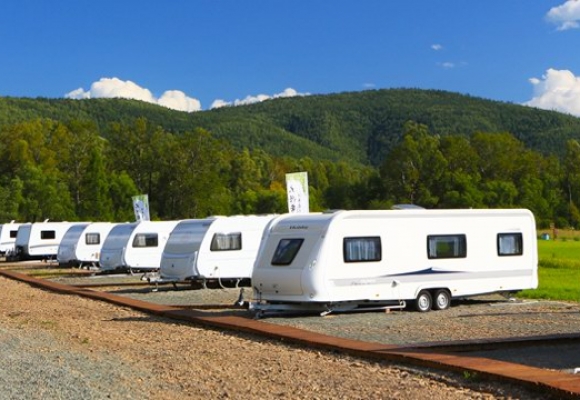As China's middle class expands, the government is betting big on caravans and campers as the future of tourism.
随着我国中产阶级的壮大,政府正大举押注房车和露营车会成为旅游业的未来发展方向。
The National Tourism Administration and several ministries announced plan to open about 500 RV campgrounds this year at a cost of around 35 billion yuan (5.2 billion U.S. dollars), as road trips have become very popular among the middle class.
由于自驾旅行在中产阶级中很受欢迎 ,国家旅游局和多个部委近日宣布,计划今年耗资约350亿元(折合52亿美元),开设约500个房车营地。

The Chinese know about RVs from a 1999 movie called "Be There or Be Square" but RV expansion has been slow due to high costs, legal issues and insufficient infrastructure.
中国人是从1999年的一部名为《不见不散》的电影中才了解到了房车。不过因成本高、法律问题、基础设施不足,房车的扩张速度已经有所下降。
Road trippers made 2.34 billion trips in 2015 and the number is expected to double by the end of 2020.
去年,自驾游旅行者旅游次数达23.4亿次,预计到2020年底,这一数字将会增加一倍。
With China's per capital income rising, RV tourism has huge potential. China has less than 500 regular-sized RV campgrounds compared to more than 16,000 in the United States.
随着我国人均收入的提高,房车旅游业有着巨大的潜力。与美国超过1.6万个常规规模的房车营地相比,我国目前只有不到500个这样的房车营地。
China has less than 30,000 RVs, only one percent of the world's total. Some 2,000 were sold in China last year, a mere 0.3 percent of aggregate sales across the globe.
我国的房车数量不足3万辆,仅占世界总量的1%。去年在中国销售了约2000辆,仅为全球总销售额的0.3%。













